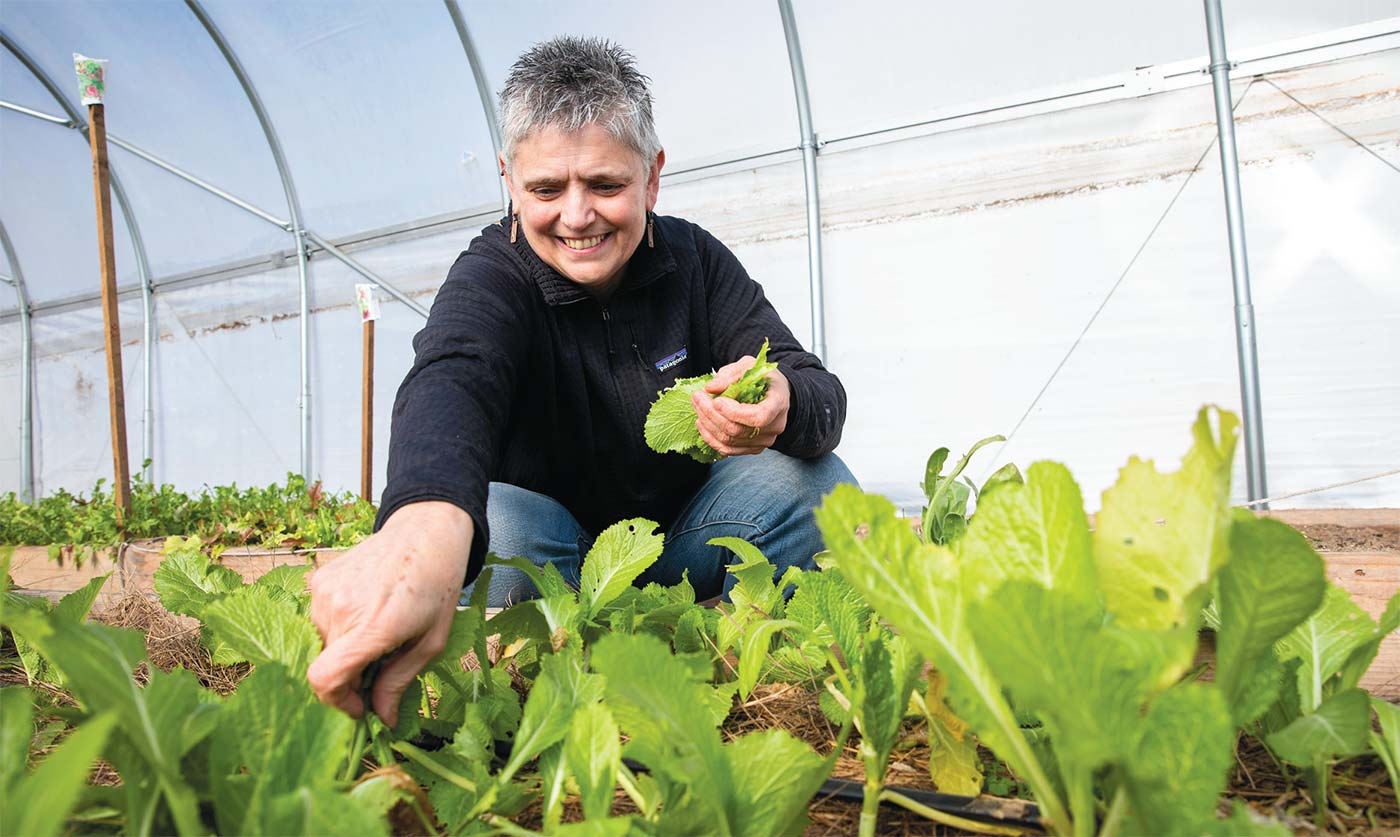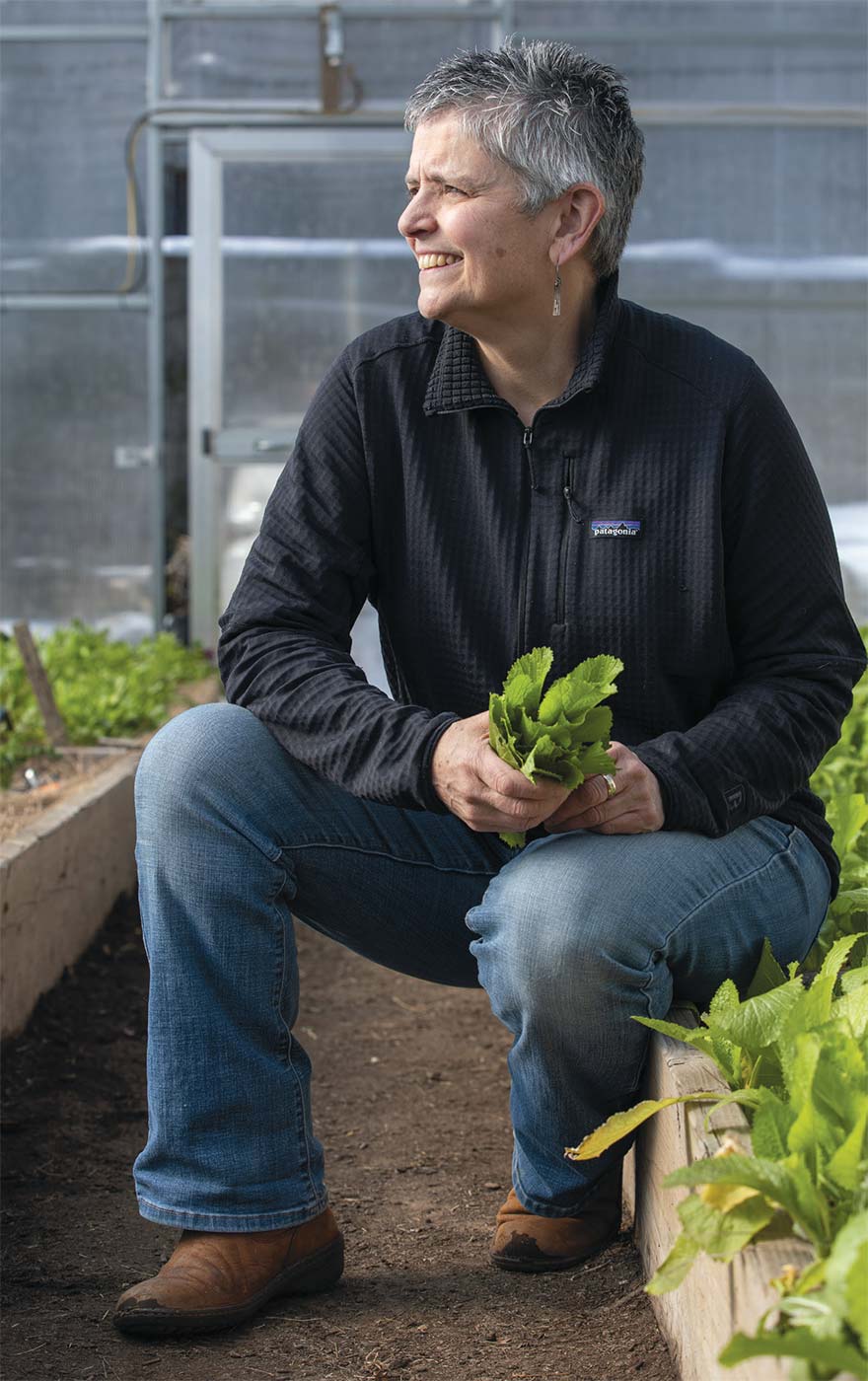The Power of Produce: Andrea Vettori

“The produce is just the entry point. We like to focus on holistic health. We look at people through the lens of improving health outcomes.”
OVER THE COURSE OF HER 25 YEARS as a nurse practitioner, Andrea Vettori lost faith in the healthcare system. “My patients were living on the margins, and I began noticing that the way the system was set up wasn’t addressing their needs,” she says. “I was only able to interact in small 15-minute windows of time, and most of what affects a patient happens outside that window.”
What affects health, according to Vettori? In addition to regular medical care, health care should also include fresh produce, exercise, mental health resources, safe outdoor spaces, and community—to name just a few factors. “When I was a nurse, I saw so many people with diabetes and other conditions related to lifestyle, and they were just swimming upstream.”
That’s basically the story of how one nurse became an urban farmer. She had been gardening and farming all her life, not as a profession but because she loved it. “I started teaching children and other folks in homeless shelters how to garden and began to slowly realize the impact that has alone,” she recalls. “By taking an abandoned lot and growing fruits and vegetables there and engaging the community, I felt like I could effect change.” So in 2017, she transformed an abandoned North Philly lot into Sanctuary Farm.
On the surface, Sanctuary Farm’s purpose appears to be easing food insecurity in North Philadelphia. And it does that. Its twice-weekly farmers market offers freshly harvested seasonal produce to the community free of charge. “But the produce is just the entry point,” she says. “We like to focus on holistic health. We look at people through the lens of improving health outcomes.”
For example, therapeutic gardening classes help people struggling with emotional health and loneliness. “To gather and work in the garden with us, to develop and sustain relationships, it’s different than one-on-one talk therapy,” Vettori says. She remembers one man who was a regular in many programs at the farm for years. “He said nothing helped him as much as being in the garden.”
Of course, holistic health encompasses physical health too. Sanctuary Farms participated in a blood pressure reduction program that monitored participants’ blood pressure over time while they were given weekly support calls and plenty of vegetables. She says it helped them get healthier. Vettori has seen community members accomplish weight health goals, too.
The farm offers frequent cooking classes. “We do them often right at the produce stand. People are set in their ways of eating. A lot of folks haven’t been exposed to beets or eggplant or whatever. We show them an easy way to cook the vegetables and give out samples,” says Vettori. Many people discover they love a vegetable they’d never tried before.
“I think folks are better able to maintain healthy eating habits and exercise habits in the context of community and relationships,” she says. Walking alone appeals to people less than gardening with friends. “When folks know what went into growing their fruits and vegetables and the people who grew them, they’re more likely to eat them and less likely to let them spoil.”

In addition to providing the community with free fresh food, Sanctuary Farm is likely also decreasing crime. “A few studies out of the University of Pennsylvania have looked at what happens when you take an abandoned lot strewn with trash, and you clean it up and plant grass. The research shows it reduces crime,” says Vettori. She also points out that if you graph the last three years of data on gun violence in the blocks surrounding the farm, you can see a decrease.
“Who knows if there’s a direct relationship between a reduction in gun violence and the farm, but I like to think we might have had something to do with it,” says Vettori. Her interest in helping the community and those who live there doesn’t stop with turning abandoned lots into gardens. One of the things she is most excited about is an upcoming program this summer that will teach teens to cook and garden.
“It’s a pilot program called Kids Can Cook. It’s not just about teaching them how to cook. It’s about engaging kids in something positive at a time when we’re more likely to see them get involved in violence. We’re bringing in role models and mentors as part of the program,” she explains.
Beyond that, she hopes that Sanctuary Farm can keep expanding. “There are a lot of vacant lots in this city, and we want to convert more and more into garden spaces,” Vettori says. “I’d love to be the hub in our community for smaller gardeners, mom-and-pop gardeners, who need support.”



